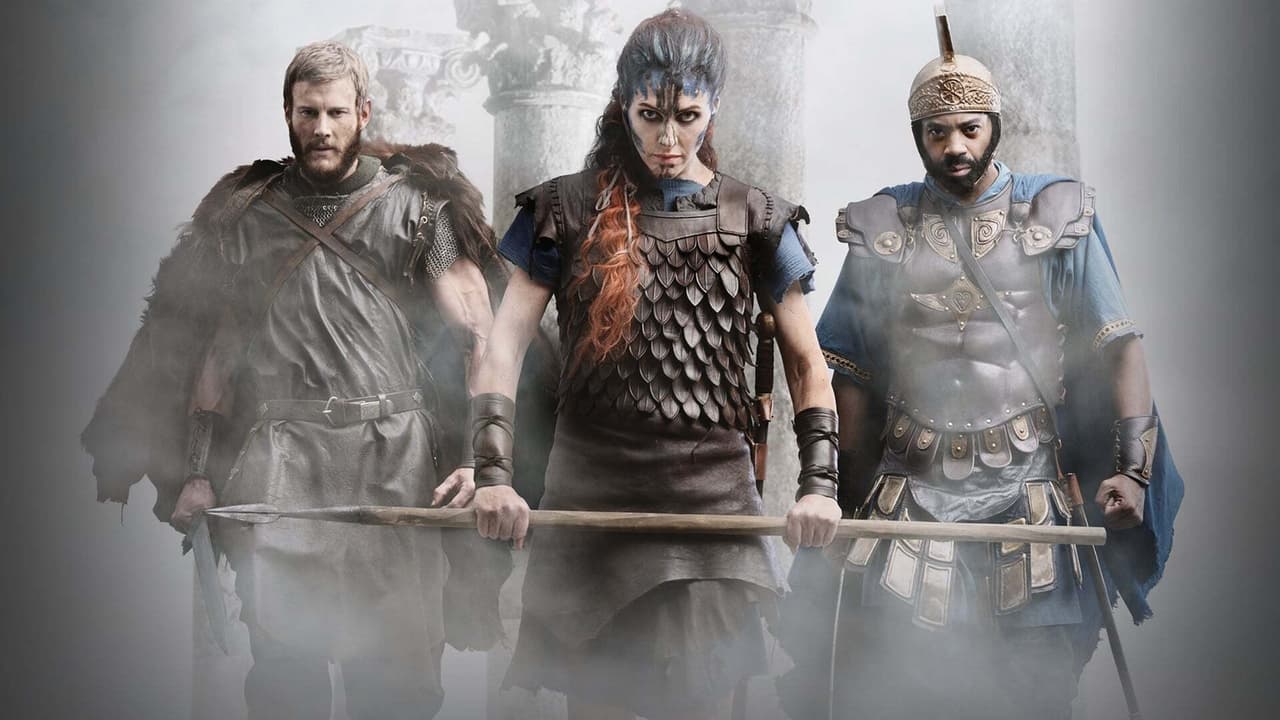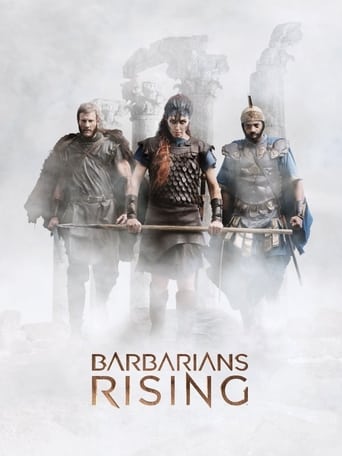

I just finished watching the this series and I enjoyed it very much!I cannot say how much I appreciated that people who were, historically, from the African continent, had dark skin. That was so lovely to see! I'd never seen a dark- skinned Hannibal before, even though it makes worlds of sense that he wasn't white. Some commentors are complaining about this and stating he shouldn't have been "African looking" because he was descendant from Phoenicians? Well, my mother and every single one of my ancestors from her side are white Germans, yet looking at me, you would not know. Human genetics sure are a thing of wonder! Trying to hide the fact that you do not want a great figure of history to look a certain way behind a pseudo-scientific comment on a TV series is a strange thing to do. Personally, I was so happy that it occurred to someone that Hannibal and his people, no matter what he looked like exactly, couldn't have been white and cast the actors accordingly because it's 2017 and it matters.Another thing I appreciated a great deal was the diversity in the historians and other experts that were consulted. It was so so refreshing and what they had to say was extremely interesting to me! There were many historians consulted, of course, but also other professionals with relevant input. A CEO speaks when it comes to explaining the mindset of an opportunistic ruler and actual Civil Rights fighters from the USA share what they know whenever the topic of slavery arises, which it often does, or when the psyche/actions of an oppressed group needs to be analysed and explained. Furthermore, I'd like to mention that for the first time in any historic documentary I've ever seen, not all of the historians are old white men! Young, accomplished historians of different ethnicities speak on several topics. There were a few interviews with an expert who was a woman, too, but not many. I like the idea that for the purpose of dealing with an empire that influenced so many different cultures and ways of life across such a large territory, people with different viewpoints and strengths came together. I liked that the documentary focused on a small number of female figures, too. I'd never dealt with Boudica before and now I know of her. I do not doubt that things were left out, as this series has four episodes, each of them being roughly the length of a movie. I do, however, feel that they did very well giving the layman an overview of what resistance to the Roman Empire looked like throughout the centuries. All four directions and the borders running along them are talked about and the maps, which are shown repeatedly, are extremely helpful and visualize the shifting of the borders well. I imagine that a selection for peoples to go into detail about had to be made and I like the results.As for the violence: Every episode starts with a warning about intense violence and there truly is a lot of fighting, killing, and a general realistic depiction of human suffering. However, unlike in many other series of this kind, there are no unrealistic amounts of blood spurting, there are no sex scenes, no zooming in on corpses with maggots everywhere and there is no nudity.
... View MoreI made it 15 minutes into Ep. 1 and could not take more. There are so many untruths in those 15 minutes, plus everything is presented in such an overly dramatic way, I turned it off. Coming back from the first commercial break, the narrator recaps everything that took place in the first 10 minutes...Really, do they have such little respect for the viewer they assume attention spans are so short or is it simple laziness to stretch material? The History Channel should do better than this...Roman history has some arguments going on still, but it is well established Hannibal was not African and neither was his father. These type of shows usually have historians and professionals who make their life about ancient history....this program has a House Rep. from Hawaii telling us '...the important thing about power is who wields it' and as one of the 'Shark Tank' showed up, I was out...done. Terrible, lazy effort History Channel.
... View MoreI was very excited when I saw that this series was being aired. The idea of a well written and well acted look at the enemies of Rome, through their own eyes is a very attractive one. Yet. I have only been able to watch the first part of the first program which is about the great general Hannibal Barca. This is a man I know a lot about having read extensively about him. The program is not interested in realism but in selling a story. First they make Hannibal black. There is no mention in any of the extensive Roman histories describing Hannibal as black. Still, I imagine it conforms to a certain type of historical wishful thinking. Underlined by the fact that they have Jesse Jackson commenting on the program. What does Jesse Jackson know about it? So much for experts... They keep calling Hannibal's troops 'Barbarians', why? I doubt even the Romans would have called them barbarians. The Carthaginians were a sophisticated empire that competed with Rome in many ways not just militarily. Hannibal was one of the great, great generals of all time, yet the program skips over many of his greatest battles with barely a mention. I stopped watching.
... View MoreA documentary series on the rebel leaders who stood up to the Roman Empire, with varying degrees of success. Through narration, expert opinion and dramatized scenes we see the histories of Hannibal, Viriathus, Spartacus, Boudica, Arminius, Fritigern, Alaric, Geiseric and Attila the Hun and their struggles for independence from Rome.An interesting period of history, with colourful subjects, well told. Well dramatized too - not just basic battle scenes as many military history series seem to consist of, but decent dialogue and human drama, in addition to some great action scenes. Many well known actors and actresses too. On the downside, the dramatization sometimes takes precedence over historical accuracy. Also, the experts that are wheeled out feel very staged, speech-filled, preachy and superfluous. For example, why on earth do you need Jesse Jackson for a series about the Roman Empire? The experts are largely just padding.
... View More